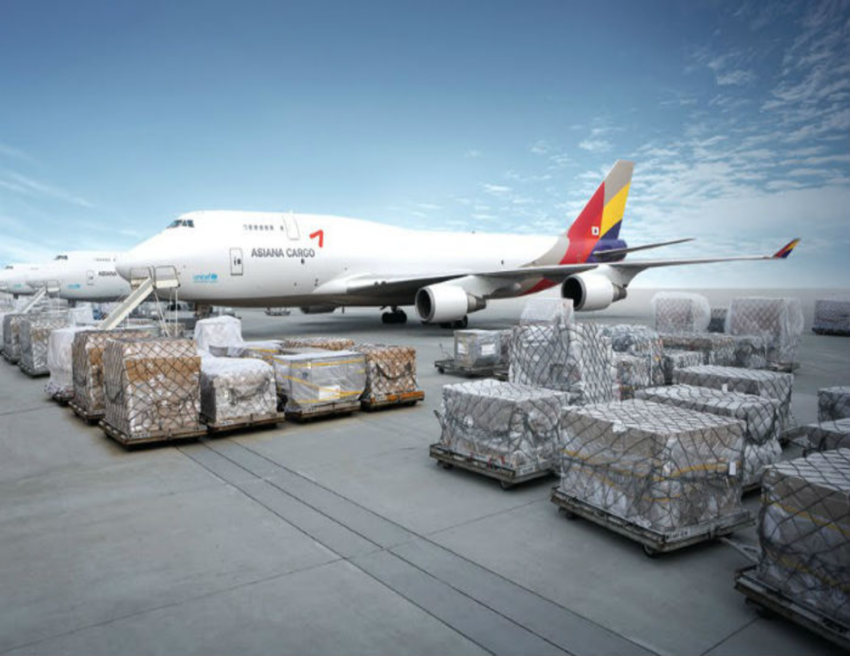
IATA Highlights Air Cargo's Crucial Role in Global Supply Chains
The International Air Transport Association emphasizes the significance of air cargo in maintaining robust global supply chains during the World Cargo Symposium in Dubai.
IATA Highlights Air Cargo’s Crucial Role in Global Supply Chains
The International Air Transport Association (IATA) underscored the vital importance of air cargo in maintaining global supply chain resilience at the commencement of its 18th World Cargo Symposium (WCS) today in Dubai, UAE.
The Association urged civic leaders and the industry to prioritize the essential needs of customers, which include safety, security, digitalization, and sustainability.
In his opening address, IATA’s global cargo leader Brendan Sullivan stated: “Whether facilitating global trade, enabling e-commerce, or delivering essential humanitarian assistance, the significance of air cargo has never been more apparent. To fulfill customer expectations and navigate a complex environment, the air cargo sector must constantly enhance safety, expedite digitalization, and fulfill sustainability obligations.”
Zero-Tolerance for Rogue Shippers
Safety remains the pinnacle priority in air transportation, especially regarding the safe handling of lithium batteries. As a result, IATA has called for governments to intensify actions against rogue shippers and support ICAO in fortifying Annex 18 of the Chicago Convention, which is the global standard for safely transporting hazardous materials via air.
Sullivan remarked: “The volume of shipments containing lithium batteries is rising, along with an increase in risks linked to undeclared or misdeclared items. The industry has committed resources to training, certification, and technology; thus, governments must align their efforts with strong oversight and enforcement.”
Required Measures for Enhanced Security
IATA reiterated its call for a coordinated, risk-adjusted method toward air cargo security in light of recent incidents involving concealed incendiary devices. Although some nations implemented new measures, the outcome was inconsistent due to a lack of alignment, emphasizing the necessity for coordinated responses grounded in global standards.
Sullivan stated: “Recent security episodes underscore the critical need for better collaboration among governments. Aviation security cannot rely on fragmented or reactive strategies. Global cooperation and standards are imperative.”
IATA also reiterated to governments the importance of fulfilling their Annex 17 obligations by sharing timely and precise intelligence to enable informed risk evaluations and operational choices.
Sullivan added: “The industry is ideally suited to understand its operations and related safety and security risks, yet governments possess far greater resources, especially regarding intelligence gathering. The best results arise when governments and industry collaborate.”
Accelerating the Adoption of ONE Record
IATA emphasized the essential role of ONE Record as the industry standard for seamless digital data exchange to boost efficiency, compliance, and transparency. The objective is clear: by January 2026, ONE Record will be the favored method for data sharing.
To promote industry-wide adoption, IATA urged:
- Airlines and forwarders to proceed with implementation.
- Governments to embrace ONE Record in regulatory data filing requirements.
- Developers to craft secure, open, and compatible digital platforms.
Sullivan explained: “ONE Record signifies a foundational transition in our data sharing, management, and trust methodologies across the supply chain. Airlines that represent 72% of global air waybill volume are on track for implementation. Over 100 IT providers and 10,000 freight forwarders are already committed. To realize its full potential, stakeholders must hasten their implementation, and governments need to recognize ONE Record in their regulatory frameworks.”
Commitment to Sustainability and SAF
The air cargo sector is continuously embedding sustainability into operations, with increasing initiatives to minimize waste, adopt circular principles, and eliminate single-use plastics. For instance, IATA’s guidelines to eradicate single-use plastics within the cargo supply chain are mirrored in operational standards.
Progress is being made in overcoming the sector’s most significant environmental hurdle: reducing carbon emissions. Momentum for Sustainable Aviation Fuel (SAF) is ramping up, marked by new collaborations across the value chain and heightened commitments to SAF utilization.
Nonetheless, SAF volumes remain insufficient, and production expenses stay high. IATA has called for governments to establish policy frameworks to enhance SAF production and lower costs.
Sullivan stated: “We are dedicated to achieving net-zero carbon emissions by 2050. However, the progress of SAF, our most powerful tool, has been disappointing as major fuel suppliers are withdrawing planned investments in SAF. Aircraft manufacturers have reduced commitments to medium-term deliveries of CO2-reducing products, such as hydrogen-powered airplanes. Moreover, governments have not supplied the necessary policy backing, despite having examples from the wind and solar sectors on how to advance. They send contradictory signals by subsidizing fossil fuel production while striving for net-zero outcomes. Airlines are resolute and determined, but we cannot achieve this in isolation. We require concrete actions from regulators, fuel suppliers, and manufacturers.”
As trade disputes intensify, IATA reiterated that trade is crucial for prosperity and that any measures impeding the free movement of goods ultimately jeopardize companies, consumers, and economies. Sullivan commented: “Current trade tensions are gravely concerning. Trade generates prosperity. The more extensively the world engages in trade, the more advantageous it is for everyone. Thus, regardless of how the ongoing trade disputes are resolved, the air cargo sector will be ready to deliver the needed and desired goods.”
